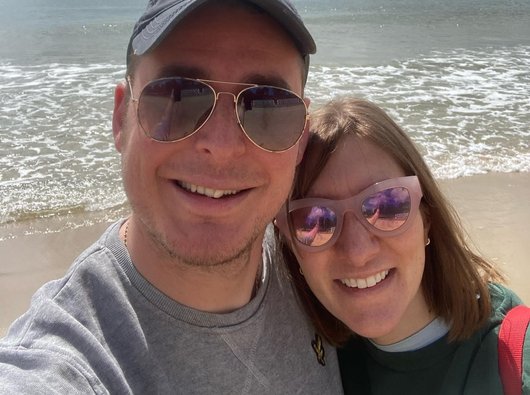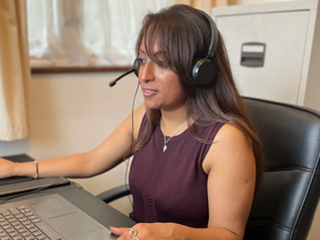Prognosis for CML
After you’ve been diagnosed with CML, you may want to know more about your prognosis – what's likely to happen in the future.
What does the future look like?
Most people with CML will have a very good prognosis, and can expect to live a normal lifespan and enjoy a good quality of life. You’ll probably need to take daily medication, and you’ll have regular check-ups with your hospital team.
There is also a chance you might be able to pause or stop treatment completely at some point in the future. You might hear this referred to as ‘treatment free remission’ or ‘active monitoring’. You can read more about this in the treatment section.
We also have separate information about active monitoring.
"I'm one of those people that needs to know everything that's going on. The more questions I asked about CML, the more it all started to make sense, which was reassuring."
Andy, diagnosed with CML in 2003

What can treatment do?
Although most treatment can’t cure CML, it can manage the disease and help to keep your symptoms under control.
The main aim of treatment is to reduce the number of cancer cells in your blood and bone marrow, so that you have more room for healthy cells to grow and divide.
The majority of people with chronic or high risk chronic phase CML respond well to treatment. Unfortunately, it is harder to control CML in the blast phase, and if this applies to you your hospital team will speak to you about your treatment options and the impact it may have on your prognosis.
It’s worth remembering that everybody is different and you may have a different experience to somebody else on the same treatment as you. If you have questions about your treatment or your individual prognosis, speak to your hospital team.
Risk of progression to acute leukaemia
If you’re diagnosed with CML in the blast phase, this means you have a more acute (fast growing) type of leukaemia. Your doctors may even change your diagnosis to acute myeloid leukaemia (AML) or acute lymphoblastic leukaemia (ALL).
If you are concerned about your risk of developing an acute leukaemia, talk to your hospital team. They know your personal circumstances and may be able to reassure you. They will also monitor you regularly and can talk to you about the next steps if they see any signs of progression to an acute leukaemia.
If you feel like you’re especially worried and would benefit from extra psychological support, you can ask your GP or hospital team to refer you for counselling. In England, you can also refer yourself through the NHS talking therapies service.

Worried or have questions about prognosis?
We can talk you through it and support you to have conversations with your doctor.
